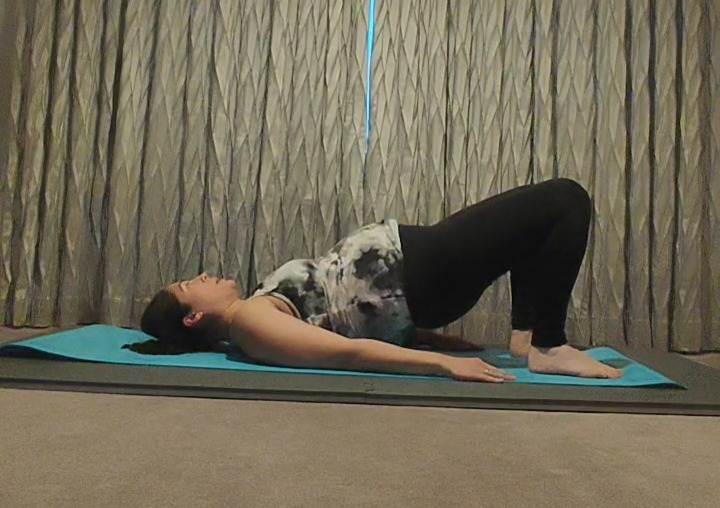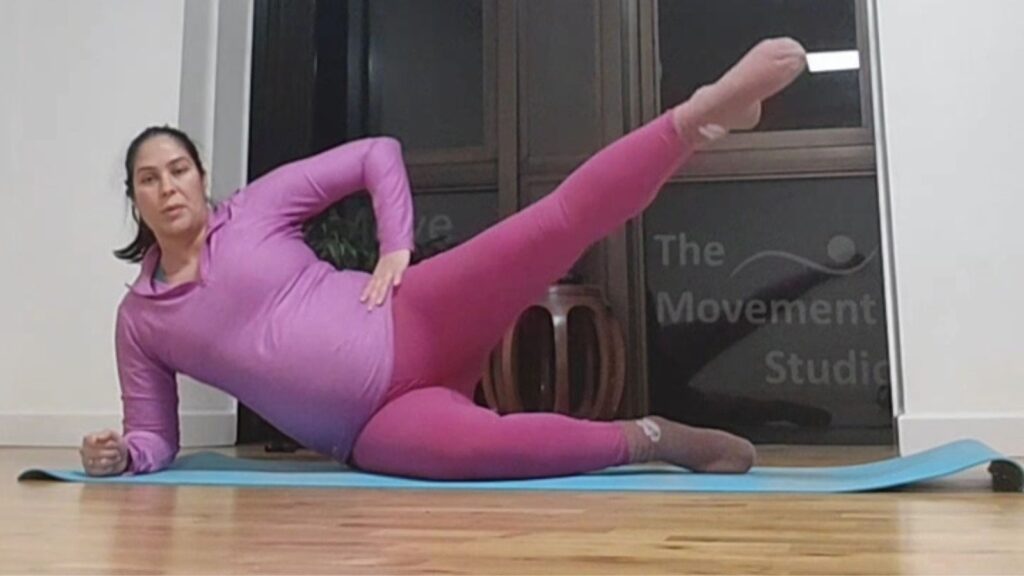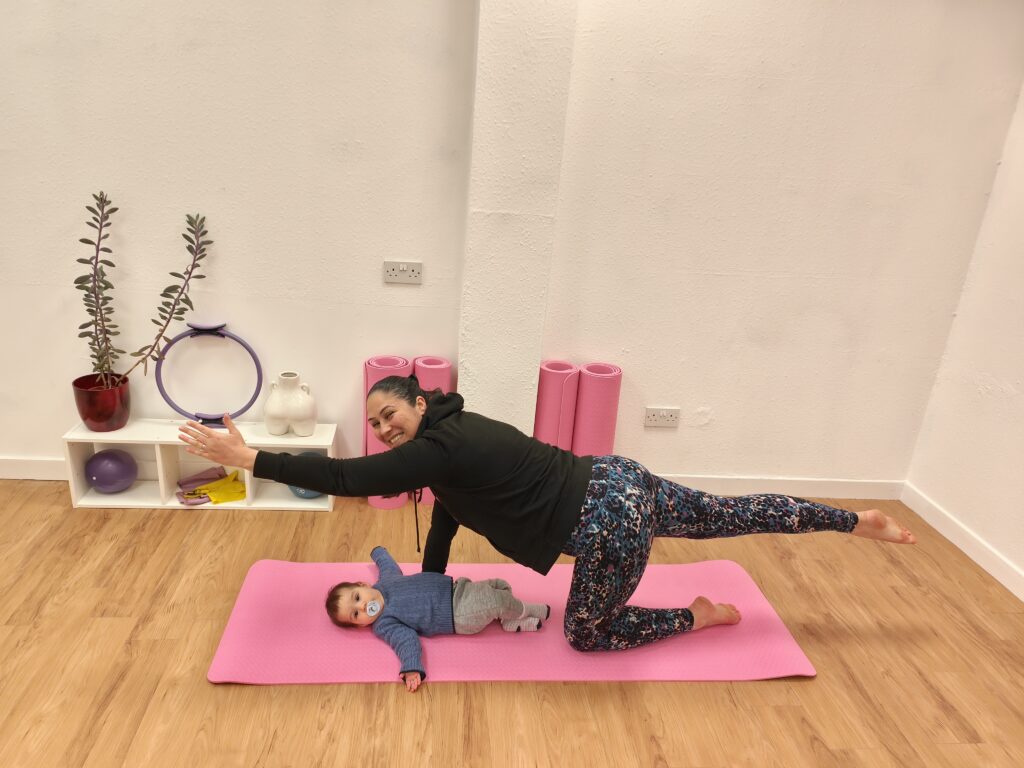Pilates can be highly beneficial for pregnant and postpartum women. It is an effective and adaptable form of exercise to accommodate a woman in the journey of pregnancy and recovery. Its focus on core strength, flexibility and breath control makes it uniquely suited to support the physical and emotional changes that come with motherhood. Here’s why Pilates is a must for pre and postnatal women:
1. Improves Core Strength
Pilates focuses on strengthening the core muscles, which include the abdominals, back, and pelvic floor. This helps support the extra weight of pregnancy and reduce the risk of back pain. (Personally I had zero back pain during pregnancy and I know this is due to Pilates as I’ve had back pain in the past).

It helps with core recovery after birth. I had a episiotomy and a 3rd degree tear, my pelvic floor was extremely weak, I felt how much that was affecting every day activities, and having done Pilates I knew how to engage the muscles to help them recover. Each time I do Pilates it brings me a step closer to being at the same core strength I had before and during pregnancy. (I’m currently 10 months post partum as I write this blog).
2. Enhances Flexibility and Mobility
Regularly doing Pilates improves overall flexibility and joint mobility, which can help alleviate some of the discomforts associated with pregnancy (and the newborn stage), such as tight hips and lower back stiffness.
During pregnancy you have the added weight and after pregnancy you have the added weight of lifting a baby that’s getting heavier each day and also sitting a lot. Both these can stiffen up the back, hips and shoulders. Being able to move those muscles and stretch them keeps pain at bay by keeping them loose.
3. Promotes Better Posture
Pilates encourages proper alignment and posture, which can help manage the changes happening in your body’s centre of gravity as your baby grows. Good posture can also help reduce strain on the back and neck.

This is equally important after birth because you do spend a lot of time sitting with the baby feeding them, or sleeping in awkward positions or just not moving as much or in the same way as before. All of this affects your posture, which then causes stiffness and aches. Allowing the body to come back into alignment will help stretch stiff muscles, strengthen weak muscles and relieve aches.
4. Reduces Stress and Promotes Relaxation
The breathing techniques used in Pilates can help reduce stress and promote relaxation. This can be particularly beneficial during pregnancy and afterwards, especially if you feel anxious or worried. It gives you that time to just focus on your breath and when you breathe deeply it calms you down and boosts good hormones, which helps you feel better.
5. Prepares the Body for Labour
Pilates exercises helps strengthen the pelvic floor muscles, which play a crucial role during labour and delivery, as well as the abdominal muscles. Both these groups of muscles will help guide the baby down the pelvis and out.
6. Supports Better Balance
Pregnancy can affect a woman’s balance due to changes in weight distribution. Pilates helps improve overall balance and coordination, which can help prevent falls and other balance-related issues. This is also important later as your body heals and regains balance.
Since having my baby my balance has been off, which I didn’t expect, if I’m honest. Over the months I can see that my balance is going back to how it was. When you are trying to do a million things with the baby in your arms, balance is key! I mean physically, not just metaphorically.

7. Helps with Pain Management
Pilates can help alleviate common pregnancy pains, such as lower back pain, hip pain and sciatica, by strengthening supportive muscles and improving flexibility .
As I mentioned above I had no back pain during my pregnancy. I did have hip pain and I found Pilates did help alleviate the pain, especially some of the hip stretches I did during class.
8. Aids in Postpartum Recovery
Regular Pilates during pregnancy can facilitate a quicker postpartum recovery by maintaining muscle tone and core strength throughout pregnancy. It can prevent diastasis recti.
Pilates also makes you aware of your body, which means you know how to move, how to engage the muscles you’re using, how to stretch tight muscles and all of this helps with recovery because you know when you need to stop or change how you move.
And let’s not forget muscles memory. This will help the strength come back quicker than you might think.
9. Community
During the classes you get to know the other women, you build your community of mums. This is so important, especially when that baby comes and things get hard. You have that group to talk to and share stories and know they will understand.
At Warrior In Training, there are prenatal classes and mum & baby classes. Mum & baby means you can bring your baby along, so you don’t have to worry about childcare. Check out the classes we have and can’t wait for you to join us.
